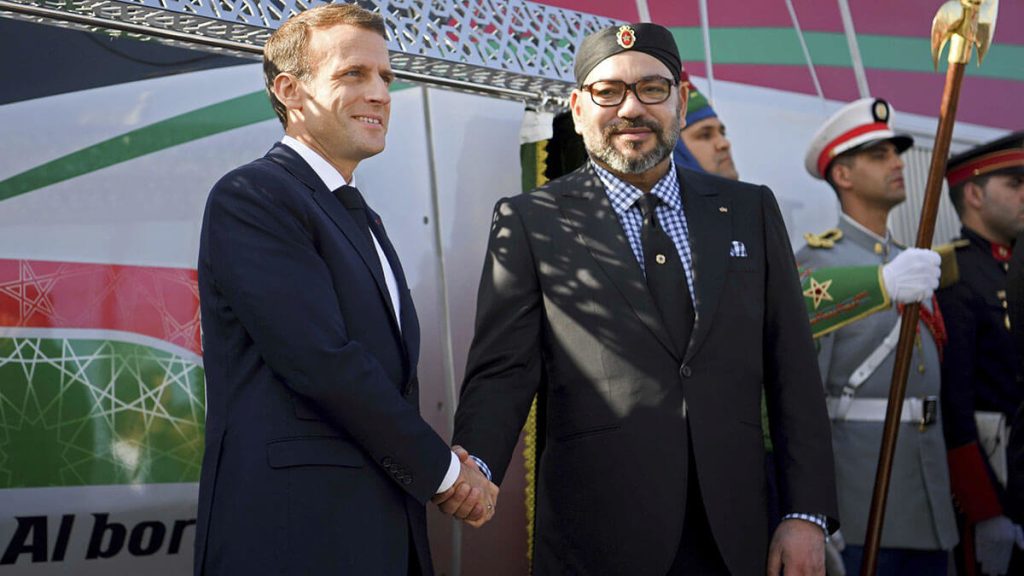French President Emmanuel Macron arrived in Morocco’s capital, Rabat, on Monday for a three-day state visit aimed at repairing ties with the North African nation after years of tension. This visit follows an invitation from King Mohammed VI in late September, who described the trip as a chance for a renewed and ambitious vision across various strategic sectors.
During his stay, Macron and King Mohammed VI are expected to sign several agreements focusing on energy, infrastructure, education, and national security. A delegation of French ministers and business leaders is accompanying Macron, including Interior Minister Bruno Retailleau, Economy Minister Antoine Armand, and Culture Minister Rachida Dati, who has Moroccan roots.
Key figures from French energy firms Engie and TotalEnergies, as well as space manufacturer Thales Alenia Space, are also part of the group.

This visit comes after a period of strained relations between France and Morocco, primarily over France’s stance on the contested Western Sahara and Macron’s attempts to improve relations with Algeria. While Morocco controls much of Western Sahara, the territory is claimed by the Algeria-backed Polisario Front, which declared a self-defence war for independence in 2020. The United Nations classifies it as a non-self-governing territory.
Macron previously eased tensions by stating that Morocco’s autonomy plan for Western Sahara was the “only basis” for resolving the long-standing conflict. Morocco’s claim to the territory had already received backing from the United States in exchange for normalising ties with Israel in 2020.
However, the visit comes amid faltering rapprochement efforts with Algeria, following multiple reschedulings of a planned state visit by Algerian President Abdelmadjid Tebboune, which was ultimately cancelled. After Macron’s endorsement of Morocco’s autonomy plan, Algeria withdrew its ambassador to France, leaving the position vacant.
Macron’s office highlighted Morocco’s potential to serve as a “hub between Europe and Africa,” particularly in terms of strategic infrastructure such as electricity. Tensions also arose when France halved the number of visas issued to Moroccans in 2021.


